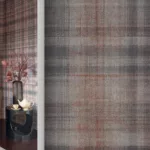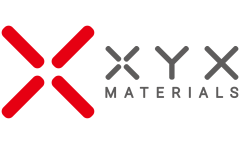D. SCHLETTWEIN
Justus-Liebig-University Gießen, Institute of Applied Physics, Gießen, Germany
Textile-based photovoltaics are of interest for an independent energy supply for a number of textile- integrated electronic applications, mainly in medical and outdoor applications. Preparation of semiconductor films from precursor solutions represents the most promising approach because of good compatibility of the processes to a low thermal stability of textiles and to the need of a three- dimensional coating process.
Dye-sensitized solar cells (DSC) represent a suitable technology since
electrolytes can bridge an electrode gap of 10-100 µm typical even in very finely woven fabrics. Thin porous films of ZnO were electrochemically deposited on ELITEX® silver-coated polyamide threads, filaments and knitted fabrics and subsequently sensitized by appropriate dyes1. The role of deposition conditions, alternative deposition baths and different substrate metals were investigated to improve performance and stability2.
On textile-compatible corrosion-resistant BEKINOX® stainless steel fibres conversion efficiency close to 1% under AM 1.5 conditions were reached3.
- T. Loewenstein et al, Phys. Chem. Chem. Phys. 10, 1844(2008).
- M. Rudolph et al, Phys. Chem. Chem. Phys. 11, 3313(2009).
- T. Loewenstein et al, Chemphyschem 11, 783(2010).
Back to the Abstracts of the
4th Intl Conference “Smart Materials, Structures and Systems”






